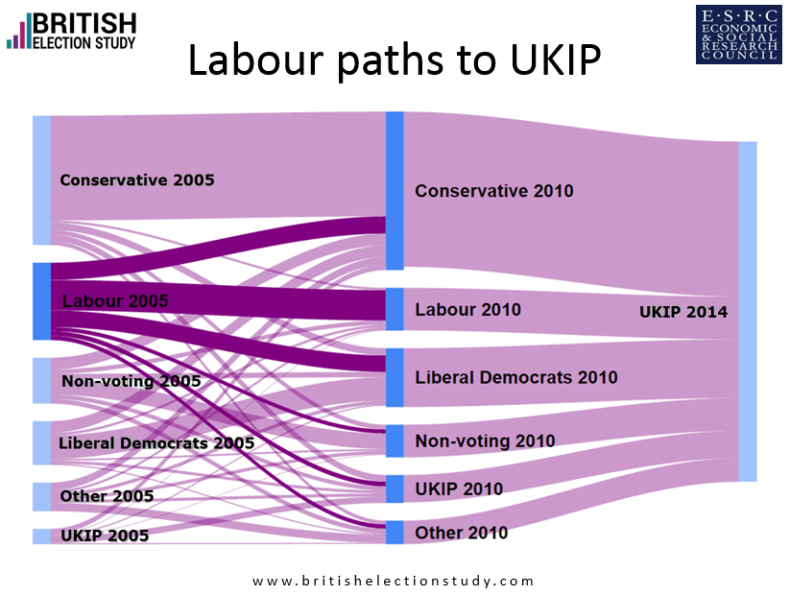Political parties are in need of friends
Lots of data, few conclusions: British Election Study tries to understand the 2015 general election
The audience at the recent British Election Study’s (BES) event in Westminster faced a solid blue screen. This was no political premonition as to what will happen in May 2015, because what followed showed how unlikely a solidly blue Conservative government is after the next election.
The event, which marked the launch of the BES film ‘Understanding British Democracy’, demonstrated to the gathering of journalists, politicians and researchers that the election will not be a simple red versus blue contest because the direct movement of voters between Labour and the Conservatives is actually very small. Many voters have been switching their views, but it has largely been different sorts of movements, such as Liberal Democrat to Labour and Conservative to UKIP.
The Ukip story
On the latter point, Professor Geoff Evans studied the massively detailed and long-running BES polling to understand how the UKIP vote has formed. If you look at the data for the period 2010 to today, you see a much greater Conservative to UKIP switch than Labour to UKIP.
But if you go back further in time and look at how voters have switched between 2005 and now, a rather different picture emerges. Take this long-term view and Labour has lost nearly as many supporters to UKIP as the Tories. However, Labour first lost those voters to other parties in 2010 as the diagram below shows. It charts the flow of voters between 2005 (on the left), 2010 (in the middle) and now (on the right).

Labour’s problem is that many of the voters it lost in 2010 have now moved on to UKIP (propelled more so by immigration than Europe as an issue), rather than being won back by Labour. That is still a big political problem for Labour but one that hinders their recovery rather than one that is likely to see them lose many extra seats beyond their 2010 low point.
When it comes to Labour gaining seats, Dr Stephen Fisher pointed out two contradictory factors. First, that Labour is doing much worse in Scotland than in England and Wales. So when judging their weak performance in national (GB) polls, it should be remembered they are doing better in England than the headline figures suggest (balancing out the worse Scottish performance) and this may help them win English marginal seats.
But, second, the geography of changes in Labour’s vote could be bad news for the party. While Labour in England is piling up former Lib Dem votes it is in places where it won’t bring them that many seats.
The friendship factor
But one thing we can be sure of, as Professor Ed Fieldhouse pointed out, is that the more friends you have who you think support a particular party, the more willing you are to consider voting for that party. The one exception is that Labour supporters are very unwilling to contemplate voting Tory, whatever their friends are doing.
All parties could benefit from getting their supporters to publicise their political colours to capitalise on the friendship effect. But it is interesting to note that most people underestimate how many of their friends support either UKIP or the Lib Dems.
With both Labour and Tories struggling to reach a share of vote that will see them win on their own, the number of seats UKIP, Lib Dems and others win – courtesy of friends or not – may well be decisive in determining the make-up of the next government.
Leave a Reply